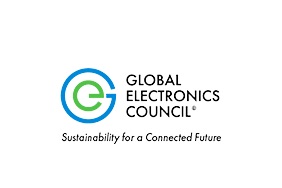Global Electronics Council (GEC) Announces Initiative To Advance Decarbonization of Solar Panel Production
EPEAT is the First Global Ecolabel to Assess Embodied Carbon in Photovoltaics
Published 03-21-23
Submitted by Global Electronics Council

PORTLAND, Ore., March 21, 2023 /CSRwire/ - The Global Electronics Council (GEC), a non-profit organization founded to promote sustainable electronics, today announced the addition of criteria within its EPEAT ecolabel system focused on decarbonizing the supply chain for solar panel production. These criteria are the first by a global ecolabel to set thresholds on the embodied carbon in photovoltaics (PV) and will be a requirement for achieving the EPEAT ecolabel designation for PV modules.
“While renewable energy is essential in the transition to the green economy, we must also consider the underlying infrastructure’s contribution to climate change,” explained Bob Mitchell, CEO of GEC. “The market needs a trusted methodology to evaluate the carbon emissions of solar panels during production in order to make informed purchasing decisions.”
Solar installations are designed to have a net zero impact in their generation of electricity; however, the embodied carbon in solar panels may vary greatly depending on the supply chain used to manufacture them. “Not all solar technology is created equal, and the new Ultra-Low Carbon Solar criteria establish an important framework with which to evaluate the embodied carbon in solar panels,” said Samantha Sloan, VP of Global Policy, Sustainability and Marketing, First Solar, Inc. “This important initiative not only acknowledges solar technology’s carbon footprint, but it also creates a tool for solar project developers and asset owners to enable their net-zero carbon goals by selecting solar technologies that align with their net-zero ambitions.”
Illustrating the value to solar developers is Nastassja Hagan, Lightsource bp’s Vice President, Sustainability, who said “Lightsource bp’s ability to procure products with lower embodied carbon is critical to meeting our targets to reduce Scope 1, 2, and 3 greenhouse gas (GHG) emissions. As a solar company, our Scope 3 emissions comprise over 99% of our total footprint, with the large majority from our supply chain, including the embodied carbon in solar panels and other equipment. Reducing the embodied carbon in solar farm equipment can bring the emissions payback period for solar assets from 1-3 years, depending on local energy mix, to under 1 year in many locations, accelerating the positive impact that solar energy development has on climate change.”
The EPEAT criteria focus on measuring and reducing what is known as Scope 3 carbon emissions or the carbon generated in the design, material sourcing, and manufacture of these products. Highlighting the importance of these reductions is Jen Snook, Deputy Director at the Clean Energy Buyers Institute, who said: “As we make strides towards a carbon-free grid, the updated EPEAT ecolabel for solar modules gives energy customers an actionable tool to drive decarbonization within their solar supply chain. Importantly, for manufacturers pursuing the higher level of achievement, the new criterion allows for credible market-based emission factors to meet the more ambitious ULCS target. As such, energy customers who preference ULCS are not only reducing their scope 2 emissions, but also likely driving further decarbonization in the grids where modules are sourced.
GEC expects to launch its public registry of solar panels that meet the new criteria in late September. Solar panel manufacturers interested in registering their products against the new criteria, which includes an independent, third-party product review, should begin the process as soon as possible.
“We are excited to see GEC take this important next step of publishing the low-carbon criteria they are incorporating into the EPEAT ecolabel for PV,” said Michael Parr, Executive Director of the Ultra Low-Carbon Solar Alliance. “We appreciate the high level of transparency in the criteria and the fact that calculations have to be reviewed twice – by lifecycle experts and a GEC conformance assurance body.”
Purchasers and manufacturers can visit globalelectronicscouncil.org/solar to learn more about EPEAT for solar panels and inverters. Visit epeat.net/about-epeat to read the new EPEAT criteria, under the photovoltaics modules and inverters category, for the EPEAT Criteria for the Assessment of Ultra-Low Carbon Solar Modules.
About the Global Electronics Council
The Global Electronics Council (GEC) is a mission-driven nonprofit that leverages the power of purchasers to create a world where only sustainable technology is bought and sold. GEC manages the EPEAT ecolabel, a free resource for procurement professionals to identify and select more sustainable products. Visit www.epeat.net. In addition, the EPEAT ecolabel is a resource for manufacturers to demonstrate that their products conform to the highest sustainability standards. Since its launch in 2006, procurement professionals have reported purchases of 2.4 billion EPEAT products, generating cost savings of $24.6 billion USD and a reduction of 286 million metric tons of greenhouse gas emissions.
Contact
Erik Fessler
Manager, Global Communications
Phone Number: +1 971-380-4088
Email: efessler@gec.org

Global Electronics Council
Global Electronics Council
The Global Electronics Council (GEC) envisions a world with only sustainable electronic technology that enhances the well-being of people and planet. Our mission is to accelerate the transformation of markets toward prioritizing the most sustainable electronic products and services. As stewards of the EPEAT ecolabel, we set global standards for electronics that empower brands and their buyers to achieve ambitious sustainability goals. Through our thought leadership, advocacy, and EPEAT ecolabel, GEC is helping to reshape the electronics industry into a driving force for environmental preservation and global well-being.
More from Global Electronics Council

